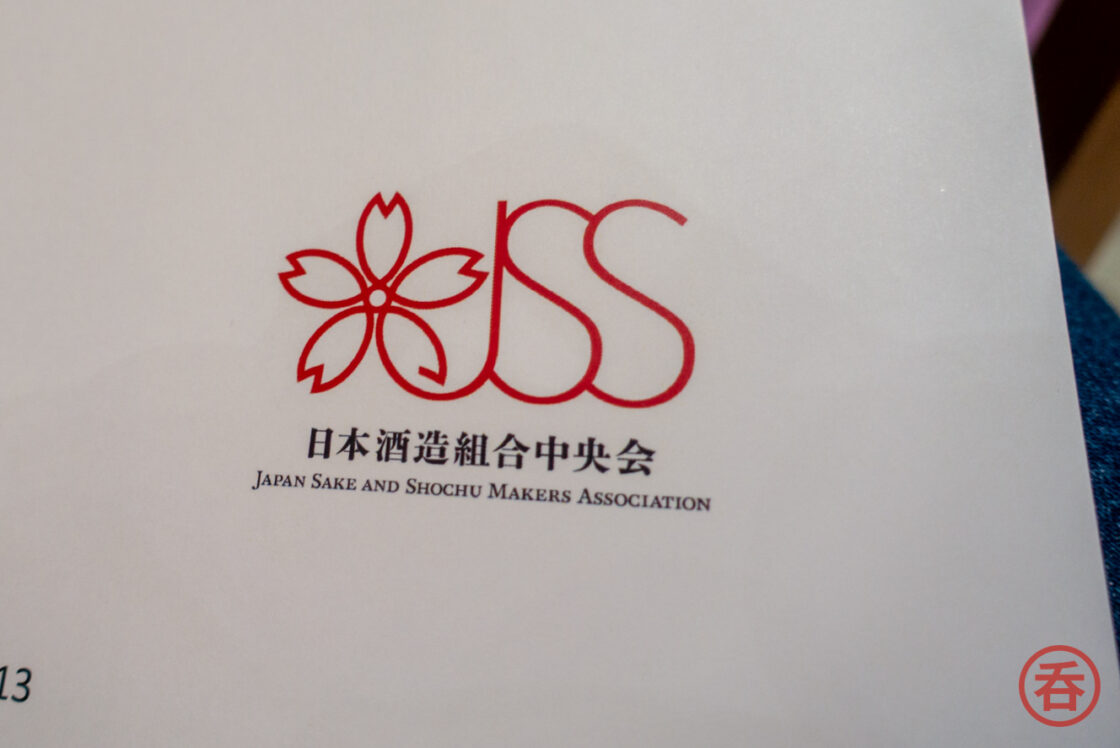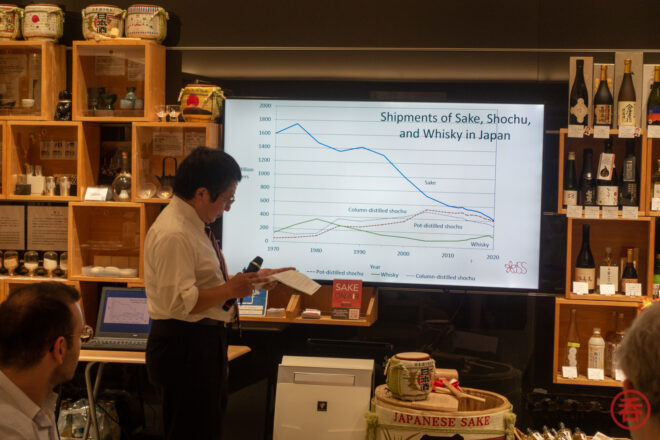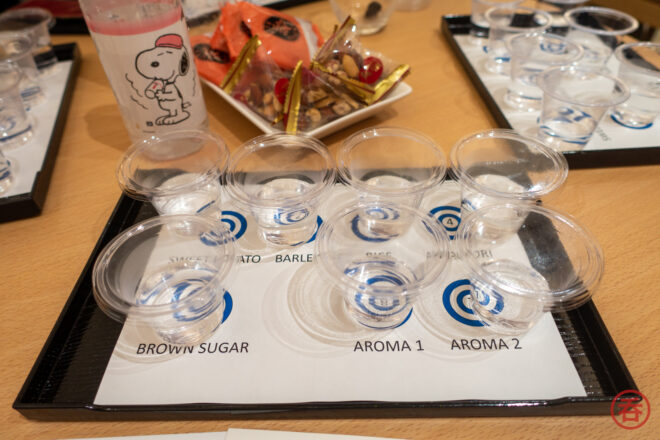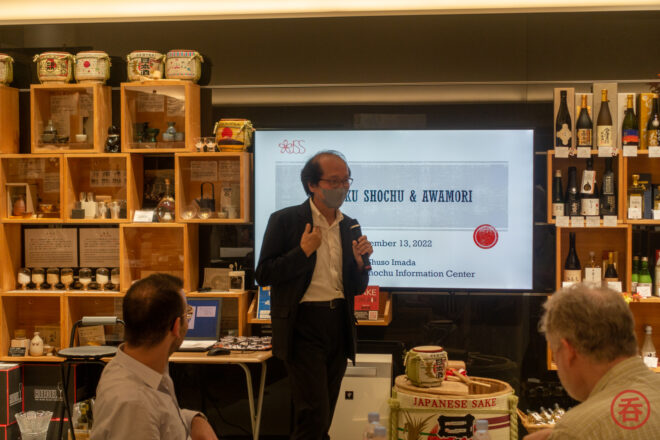JSS already called us into the Shimbashi Information Center for a sake session, so this time around they summoned us to learn about honkaku shochu and awamori. Event report!
The Japan Sake and Shochu Makers Association (“JSS“) is a massive trade union representing the interests of around 1700 sake makers and over 250 shochu makers. For the sake of comparison, DISCUS in the US represents around 250 distilleries, SWA in Scotland has about 90, and JSLMA–the trade union representing non-Japanese drink makers here in Japan–also has about 90.
This session focused specifically on honkaku shochu and awamori, the kind of shochus and awamoris that a lot of bartenders seem to be interested to explore these days. For simplicity, let’s just say honkaku refers to single-distilled shochus made in a pot still.
Jumping right into the data, while domestic shipments of sake have been in decline since peaking in the early 1970s, shipments of shochu have seen a slight increase. Exports of sake and shochu are very different story: sake has exploded while shochu is yet to take off. Clearly, that’s a situation JSS and its members want to change.
Even many die-hard spirits fans outside of Japan haven’t heard of shochu, so the first step is education. That brings us to today’s session. We heard a basic recap of the main styles of shochu, and had some samples to go along with them. Sweet potato, barley, rice, awamori, brown sugar — I personally wouldn’t translate kokuto as “brown sugar” — and some bonus samples to highlight how varied shochu aromas can be. Notably, we didn’t get any kasutori shochu or hanatare.
The sample lineup at the bar included several well-known brands like Komasa Jyozo’s Kura no Shikon The Orange (sweet potato), Torikai Shuzo’s Ginka Torikai (rice), Kikaijima Shuzo’s namesake (kokuto), Hamada Distillery’s ever-present Daiyame (sweet potato), Osuzuyama Distillery’s Yamaneko (sweet potato), and Zuisen Distillery’s Zuisen Omoro 18. Plenty of options for discerning drinkers.
My hope is that JSS offers similar sessions in the future going quite a bit deeper into each style of shochu. Given JSS represents so many different shochu distilleries, it’s not much of a stretch to say that they have access to what amounts to Japan’s entire body of knowledge about the category, so it’s up to them how they choose to share.
Hi there! I created and run nomunication.jp. I’ve lived in Tokyo since 2008, and I am a certified Shochu Kikisake-shi/Shochu Sommelier (焼酎唎酒師), Cocktail Professor (カクテル検定1級), and I hold Whisky Kentei Levels 3 and JW (ウイスキー検定3級・JW級). I also sit on the Executive Committees for the Tokyo Whisky & Spirits Competition and Japanese Whisky Day. Click here for more details about me and this site. Kampai!







